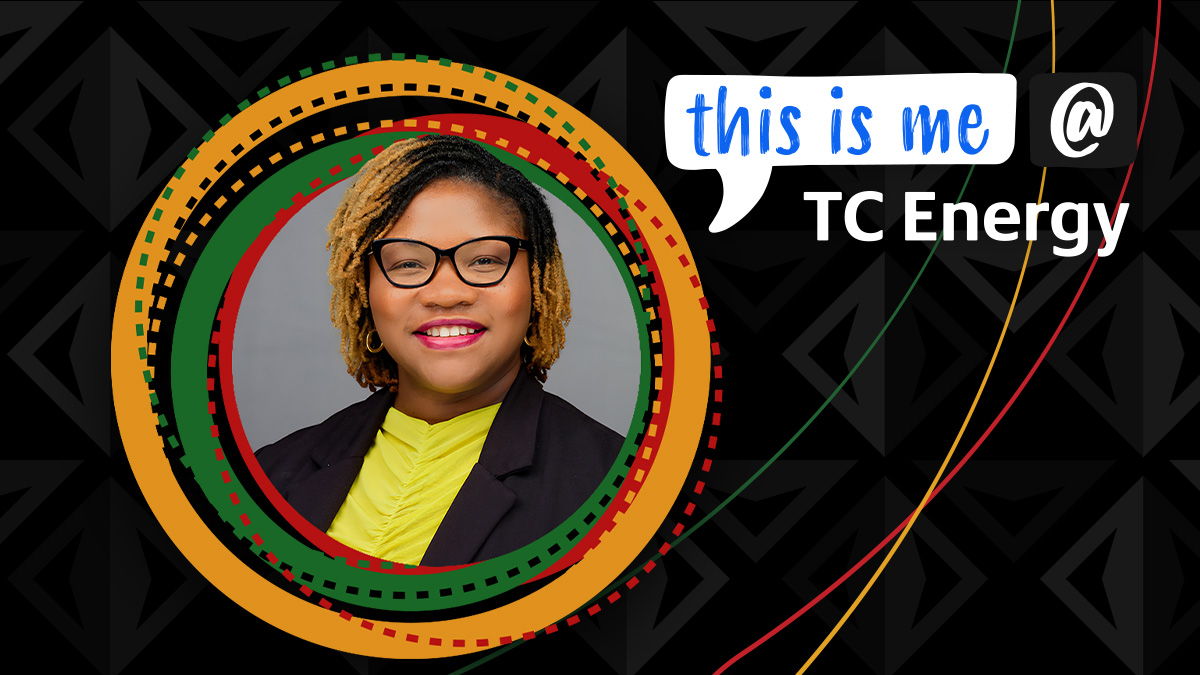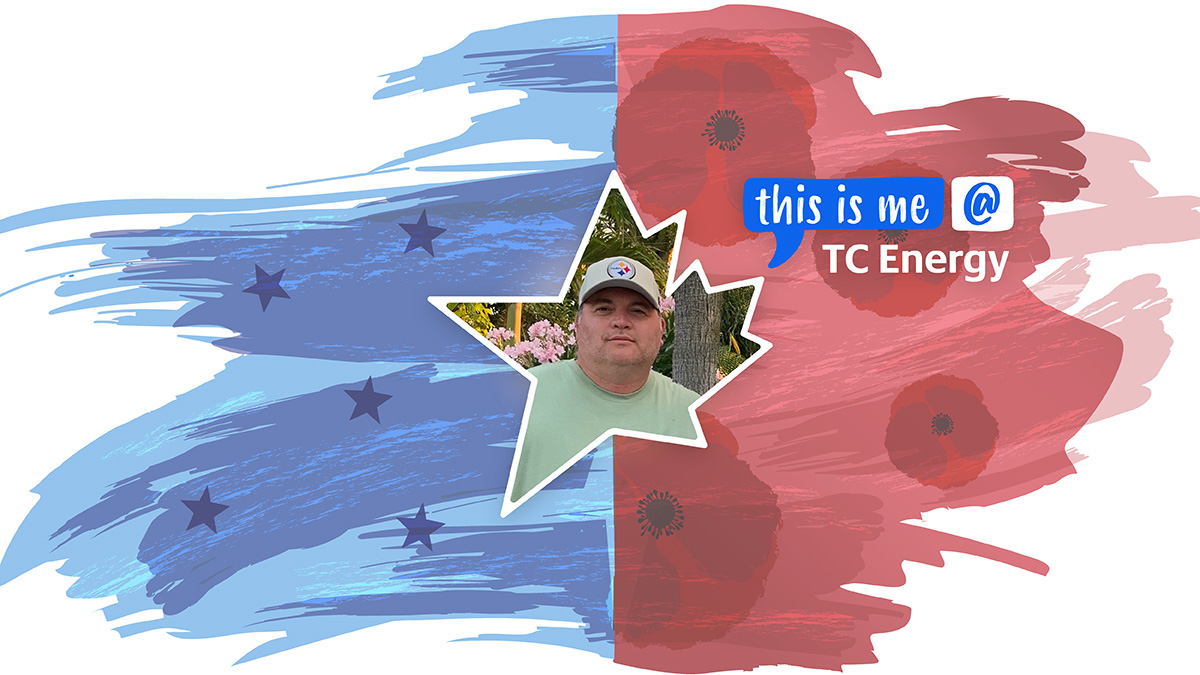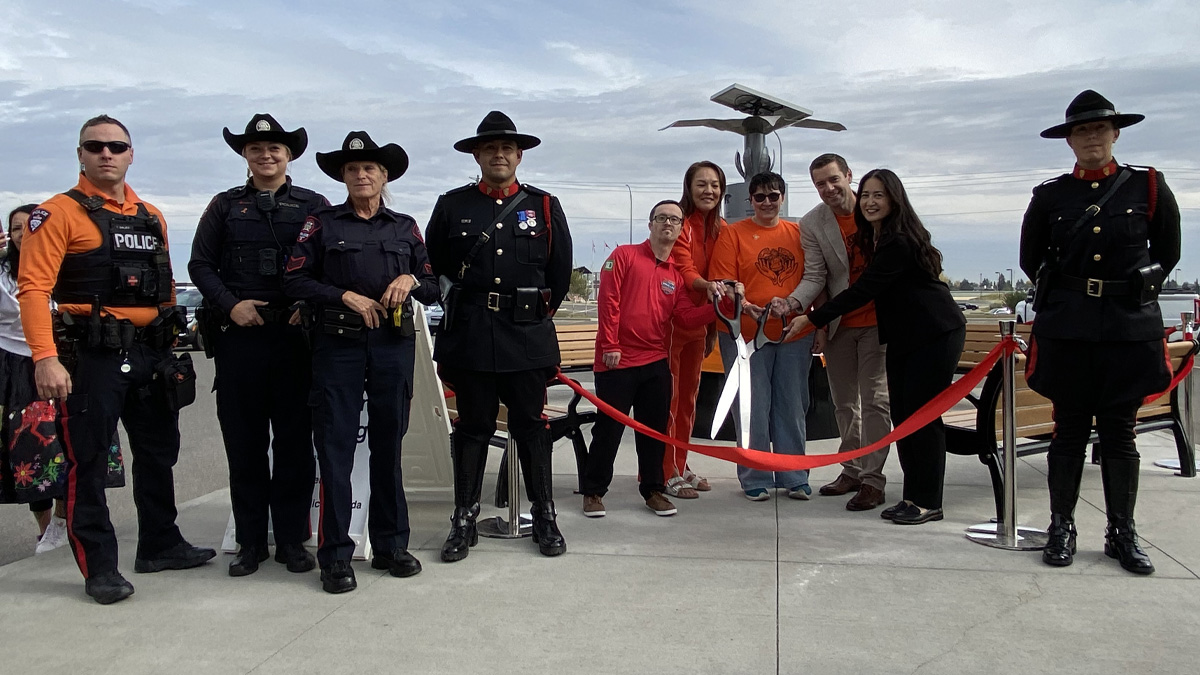Feb 18, 2026
Working with Indigenous groups
For more than 40 years, TC Energy has been engaging with Indigenous groups. We recognize Indigenous groups as rightsholders who have a distinct relationship to the land. We understand that our business activities have the potential to affect these groups in tangible ways.
Our approach to Indigenous Relations
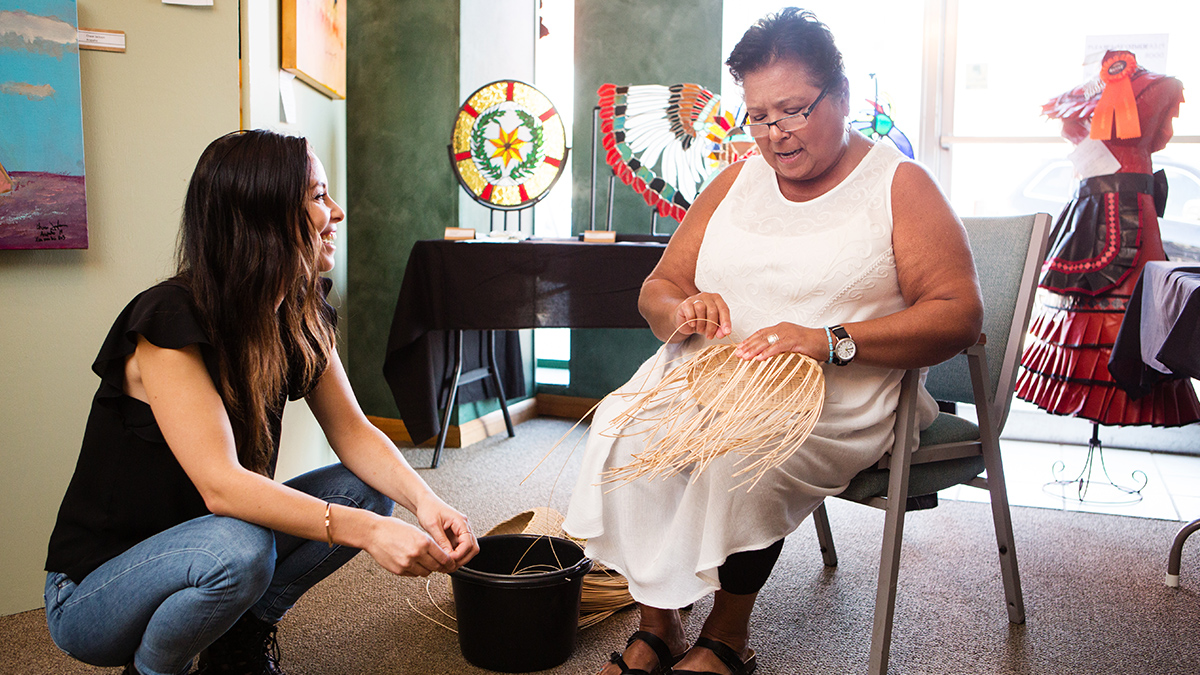
Our Indigenous Relations team engages early and often with potentially affected Indigenous groups to understand their interests, identify opportunities, respond to their concerns and facilitate participation on our projects. We identify and create opportunities that support these groups through education and training, community legacy, scholarships and engagement with Indigenous contractors and businesses. By working together and ensuring open communication with Indigenous groups, we strive to earn their respect and trust to establish and grow positive long-term relationships.
Our Indigenous Relations policy, strategy and guiding principles inform our work with Indigenous groups. Learn more below.
Commitment made in 1970s to Indigenous engagement while planning pipeline projects in northern Canada
First formal Native Employment and Business Opportunities Policy adopted in 1982
Indigenous awareness training sessions offered to employees and contractors since 2001
Our guiding principles
The following principles guide our engagement activities with Indigenous groups:
- Recognizing the unique connection Indigenous Peoples have with the land and their community governance.
- Ensuring meaningful and respectful engagement with Indigenous groups, as early as possible, using a principled approach.
- Achieving regulatory certainty using a pragmatic approach in the jurisdiction where we are building or operating.
- Building innovative project strategies, reflecting engagement and regulatory outcomes that are defensible, commercially reasonable and community led.

TC Energy strives to be a leader in the delivery of energy in a safe, responsible and sustainable manner, ensuring we are positioned to maximize long-term value creation.
For investor-related information:
Our strategy
Engaging Indigenous groups
TC Energy believes mutual success is anchored in relationships based on trust and respect. It’s what we do every day. We demonstrate trustworthiness through our actions.
People and contracting
We bring value to our relationships with Indigenous groups through project‑specific and long‑term career and business opportunities.
Community legacy
We conduct ourselves as partners committed to forging collaborations that result in lasting, positive change for both the company and Indigenous group.
Project participation
Participation agreements are one way we work with Indigenous groups potentially affected by our activities to acknowledge their unique governance, relationship to the land and legal standing.
Deepening our understanding
Providing employees and contractors with a deeper understanding of the history, cultures and traditions of Indigenous peoples is essential for successful engagement with Indigenous groups.
We offer a multi-tiered approach to our Indigenous Awareness Training Program. In 2020, we began developing new mandatory annual company-wide training that focuses on educating all employees, contractors and members of the Board of Directors on the history and cultures of Indigenous peoples in North America, with training to be rolled out in 2021.
Since 2001, we have offered – and continue to provide – additional training modules open to all interested employees and contractors. The training includes region-specific histories, cultural practices and hands-on experiences such as smudges and sharing circles led by Elders, as well as online and in-person workshops on our policies and engagement expectations.
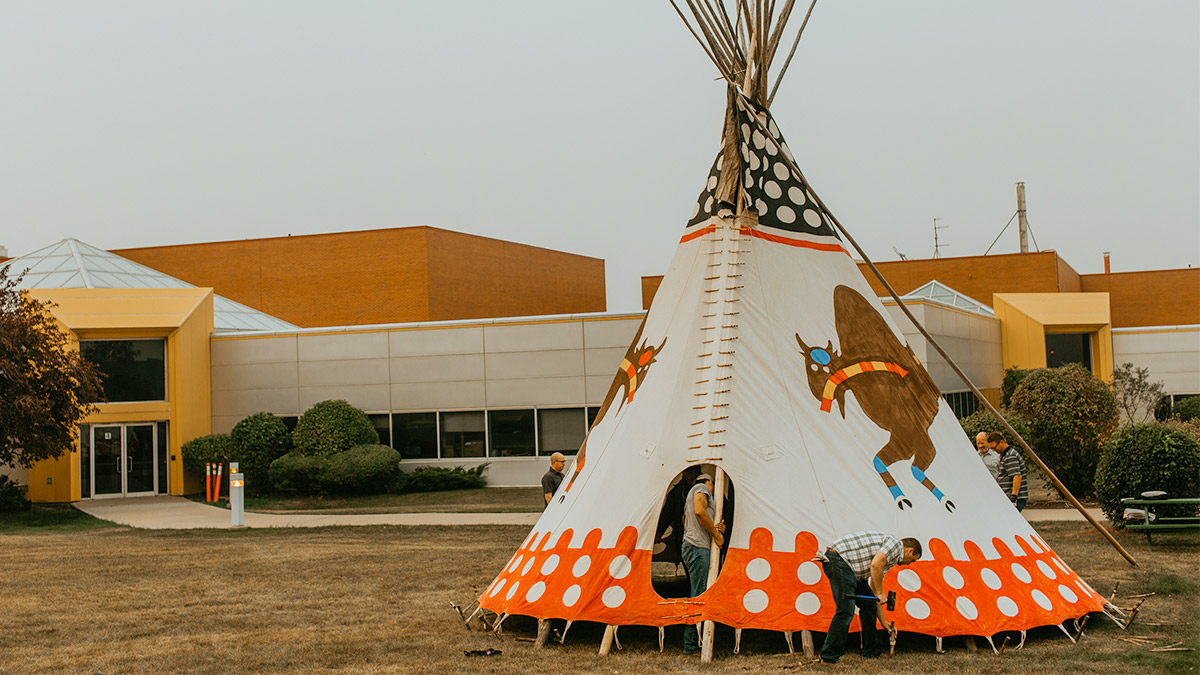
Related documents
FAQs
How long has TC Energy been engaging with Indigenous groups?
We have been engaging with Indigenous groups for more than 40 years. We are committed to building and sustaining Indigenous support for TC Energy’s projects and operations through early, ongoing, and honest communication, by mitigating impacts, and with mutually beneficial partnerships, recognizing that many of our activities occur on traditional lands.
What is the difference between engagement and consultation with Indigenous peoples?
In Canada, the duty to consult always rests with the Crown, and is driven by the fiduciary obligations of the Crown to Indigenous peoples under treaty and law. The duty arises whenever the Crown is making a decision that may adversely affect the exercise of Aboriginal and Treaty rights, as protected under s.35 of the Constitution Act, 1982.
The Crown can delegate procedural aspects to an Industry proponent to assist in fulfilling its duty, as proponents are often in the best position to address Indigenous groups’ concerns related to projects. TC Energy’s engagement with Indigenous groups aims to build relationships with Indigenous groups by exchanging information and address project related issues and concerns and can include delegated procedural aspects.
In the U.S. and Mexico, the government has not delegated procedural aspects of consultation to project proponents. In the U.S the federal government handles all aspects of consultation, including determining which groups it will consult, defining consultation guidelines, and reaching agreements with them when required. Project proponents are permitted to supplement government or regulatory agency consultation activities with Indigenous groups, but accountability for consultation remains with the government. In Mexico, consultation with Indigenous groups is the responsibility of the federal government and is led by the Secretaría de Energía (SENER).
How does TC Energy identify potentially impacted Indigenous peoples for engagement on new projects? Do instances arise where the impacts identified are recognized in international law but not in domestic law?
TC Energy identifies Indigenous groups through a combination of desktop research, regulators’ guidance and the company’s own operating experience – including past projects in the region, existing agreements with Indigenous groups, and an established network of contacts with Indigenous groups in the project area.
TC Energy also considers the project’s proximity to:
- Tribal reservations and ancestral lands in the U.S
- First Nation reserves, Indigenous settlements and communities and asserted traditional territory of Indigenous Peoples in Canada and
- Indigenous settlements and communities in Mexico.
In addition, TC Energy engages with any Indigenous group that self-identifies as a potentially affected party to understand their interests, the nature of their concerns and to determine the most appropriate method of engagement going forward.
Canada, the U.S. and Mexico (the three countries within which TC Energy operates) have distinct laws pertaining to the protection of Indigenous rights and interests, as identified in Article 32.3 of the United Nations Declaration on the Rights of Indigenous Peoples (UNDRIP). Where TC Energy’s business activities have the potential to affect Indigenous groups, we listen to their issues and concerns and work with them to incorporate their traditional knowledge in project design and planning, mitigate negative impacts and maximize benefits through hiring and buying locally.
We aim to build mutually beneficial partnerships where benefits outweigh the impacts, and our legacy is positive for those most impacted by our activities. In Canada, we are seeking to expand benefits for equity participation in our projects and assets because the best way to align interests is to sit at the table together as partners/owners. Through all these efforts, we strive to be considered a partner of choice for Indigenous groups and play a meaningful role in reconciliation. By taking this approach, we adhere to and often exceed the regulatory requirements of the respective jurisdictions.
How do you avoid impacts on traditional and sovereign lands, including water, air and land pollution, and provide consideration of routing studies?
TC Energy recognizes the unique connection Indigenous peoples have to the land and resources, and our goal is to anticipate, prevent, mitigate and manage conditions that have the potential to affect Indigenous groups and to enhance benefits for the most impacted Indigenous groups over the life of a project across all business lines and jurisdictions. Our project engagement is informed by our Indigenous Relations policy, strategy, and guiding principles, as well as legal and regulatory landscapes, which continue to evolve.
TC Energy's routing criteria are intended to minimize the proposed route's environmental and socio-economic effects, including the potential impacts on Indigenous traditional use sites, areas, and activities. Feedback and traditional knowledge received through Indigenous engagement are considered in project planning, including route refinement, to mitigate project-related effects on the exercise of Indigenous rights and balance all relevant factors of the route selection criteria, as appropriate. Regardless of what region we operate in, we aim to reach consent on our projects with Indigenous groups through early engagement, honest communication, and mutually beneficial relationships.
Does TC Energy track the percentage of employees and contractors that are Indigenous?
TC Energy makes every effort to track the overall percentage of Indigenous employment; however, this information is based on self-identification. It is not a practice of TC Energy to require self-identification by any employee or contractor.
How do you deliver training on Indigenous cultural awareness?
We offer a multi-tiered approach to our Indigenous Awareness Training modules. Since 2001, we have offered Indigenous Awareness training, which outlines our company's Indigenous Relations Policy, strategy and guiding principles to all interested employees and contractors. In addition to in-class training, we regularly facilitate opportunities for employees to learn firsthand about history, protocols and culture through in-person experiences.
A total of 2,220 employees and contractors have taken this training since 2001. In 2022, we offered 7 sessions, and 172 individuals took this training. In 2021, we also developed, with input from TC Energy's Indigenous employees, an online mandatory training module covering Indigenous peoples' history and cultures. This was rolled out to all Canadian employees and certain contractors. By April 15, 2023, 92 percent of the Canadian workforce had completed the training. Additionally, an interactive session was provided to members of our Board of Directors.
How does TC Energy measure the success of its engagement with Indigenous group?
We measure the effectiveness of our engagement approach by tracking, responding to, and striving to resolve all issues and concerns raised by Indigenous groups with whom we engage. We have developed an approach to resolve issues and concerns outside the regulatory process with groups most impacted by our operations, aiming at obtaining their support. We have also established mechanisms to check in and get feedback from Indigenous groups on the status of relationships and ways to improve.
TC Energy implements the Indigenous engagement program to develop and strengthen relationships with Indigenous groups and to foster productive dialogue throughout the asset lifecycle. Creating positive, long-term relationships is always the goal of TC Energy’s engagement with Indigenous groups.
In addition to tracking the number of “engagements with Indigenous groups” does TC Energy track the percentage of potentially impacted groups with whom agreements have been reached? Is the company willing to report this information?
While TC Energy does not use agreements as a measure of success in Indigenous engagement, we do enter into agreements with Indigenous groups potentially affected by our activities, such as capacity funding agreements, Traditional Knowledge funding agreements, community and participation agreements.
In 2021, we entered into a total of 94 agreements with 46 Indigenous groups we engage with across Canada. Meanwhile, in 2022, we executed 45 agreements with 39 Indigenous groups across Canada.
Need more information or have a question?
Email us at Indigenous_relations@tcenergy.com, call us at 1-855-895-8754 or visit our Contact us page for more information.

